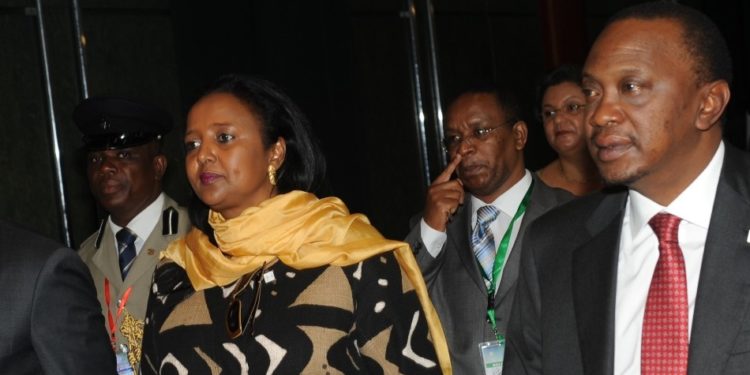By Kwamchetsi Makokha
Genuine surprise has greeted news out of Addis Ababa that Kenya’s foreign minister will not occupy the chair of the African Union Commission as the continent’s foremost diplomat.
Only last November, Ms Vestine Nahimana, the Burundian ambassador to The Hague, Netherlands, was distributing Ms Amina Mohammed’s campaign materials to diplomats at the World Forum, venue of last year’s Assembly of States Parties. Burundi had just served notice of intent to withdraw from the International Criminal Court after South Africa, and quickly followed by the Gambia.
“We have a good candidate,” Ms Nahimana enthused in Kiswahili since her French and my English constantly clashed. Burundi’s failure to support the Kenya candidacy in Addis was a curious highlight of the election.
The ASP is a wasteland in the wake of Ms Mohammed’s scorched earth diplomacy on behalf of Kenya’s efforts to extricate its President and Deputy President from charges at the ICC. It is also a living reminder of Kenya’s and Ms Mohammed’s bellicosity.
Ms Mohammed’s candidacy had seemed like a slam dunk. Her intelligence, eloquence, experience and personal charm recommended her greatly. She was just what the doctor ordered after the initial slate of former Ugandan Vice President Specioza Wandira Kazibwe and Botswana’s Dr Pelonomi Venson-Moitoi, and Equatorial Guinea’s Agapito Mba Mokuy failed to command two-thirds of the continent’s 54 votes.
At the AU, Kenya has shaped relations between the ICC and the continental body, thanks in no small part to Ms Mohammed’s leadership as Cabinet Secretary for foreign affairs. Within months of assuming office, she had mobilized the AU for an extraordinary summit at which President Kenyatta lambasted the ICC for race baiting and dismissed it as a tool of declining imperial powers. Subsequently, the AU was forced to adopt a posture of grave injury towards the ICC, even establishing an open-ended ministerial committee to strategise on mass withdrawal from the court.
So poisoned were relations that efforts at formal contact through the establishment of an ICC liaison office at the AU were permanently rebuffed during the tenure of outgoing chair Nkosazana-Dlamini Zuma.
Last week, at Leiden University in the Netherlands, a leaked confidential AU strategy on mass withdrawal from the ICC was presented outlining legal, political and institutional steps to be undertaken. “The collectiveness of the action [mass withdrawal] has the potential to radically reconfigure existing forms of international cooperation,” the document says in part. AU strategists figure that withdrawal from a treaty “can give a denouncing state additional voice, either by increasing its leverage to reshape the treaty to more accurately reflect its interests or those of its domestic constituencies, or by establishing a rival legal norm or institution together with other like-minded states.”
Although President Kenyatta enjoys great personal influence in Addis Ababa, it was not enough to deliver the AU chair. Addis is the only capital where the agreeable Ms Catherine Muigai is ambassador. She is not just a diplomat waiting in line to speak to the President through the Africa desk at the Ministry Foreign Affairs but can call to chat about his children — her nieces and nephews. A diplomat with that kind of access has great influence in a capital like Addis, which not only headquarters the AU but also the United Nations Economic Commission for Africa. Mr Kenyatta is also a beneficiary of hereditary diplomacy. His father, Kenya’s first president, established personal friendships across the continent that the son continues to benefit from. But as early as last year’s summit, African diplomats were beginning to avoid their Kenyan counterparts in Addis because of a widespread belief that Nairobi had already obtained all that it could from the AU. While Kenya’s aggressive diplomacy may have delivered results, it has also engendered bitterness in countries that feel that the East African nation was getting too big for its breeches.
At the ICC, Amina Mohammed’s candidacy was not accepted as an inescapable inevitability, given what initiatives she led had bred.
Over a dinner of lamb stew and rice at an African diplomat’s house in The Hague last year, I heard for the first time how countries on the continent were working to stop her coronation. Senegal, especially, was working on a strategy that would distance critical West African and Francophone states from offering her support.
Notably, Nigeria and Senegal issued statements distancing themselves from the ICC withdrawal statement a week before this year’s summit. Ms Mohammed, the poster child of that campaign, was never going to enjoy the support of West Africa, and especially the Francophone countries. When the numbers were in, it was clear that she was never going to garner the requisite two-thirds of the vote.







